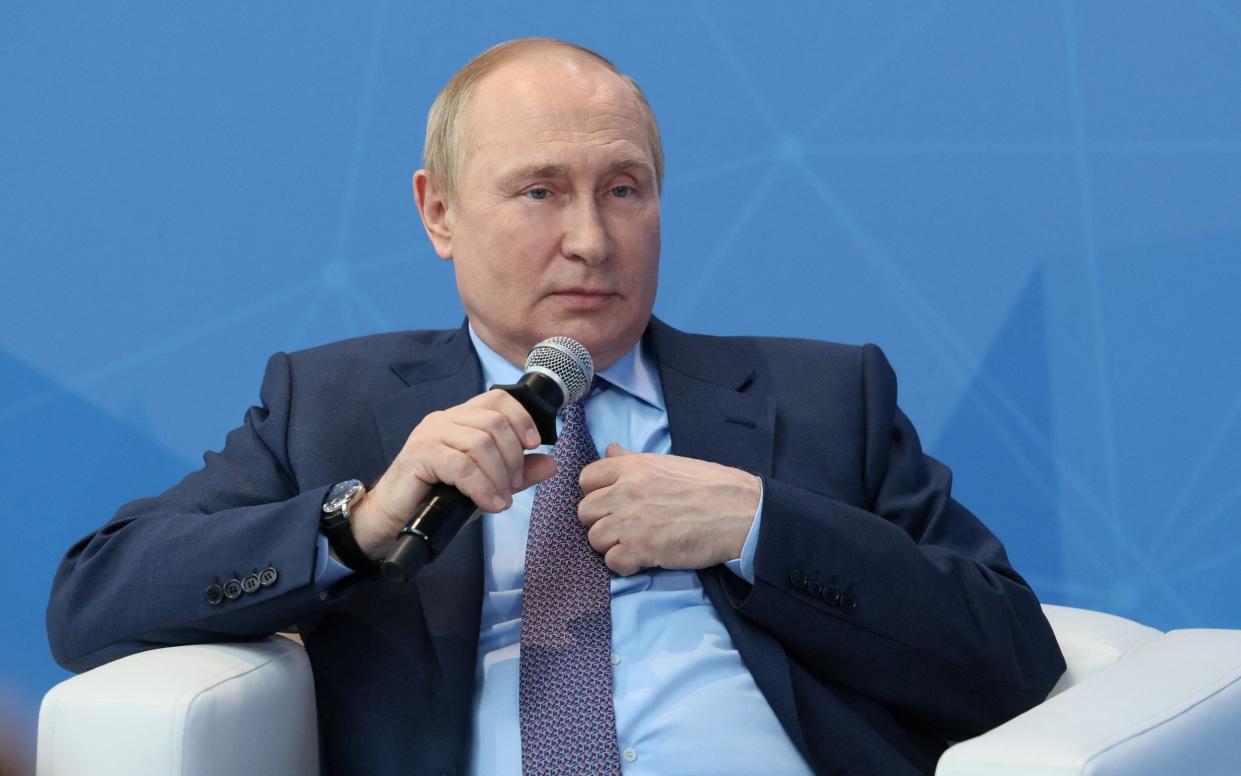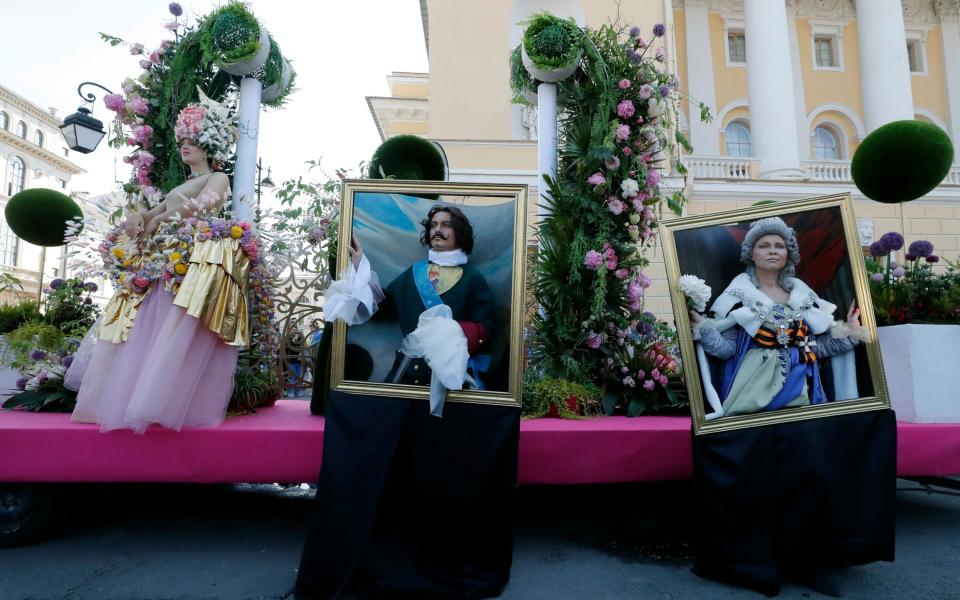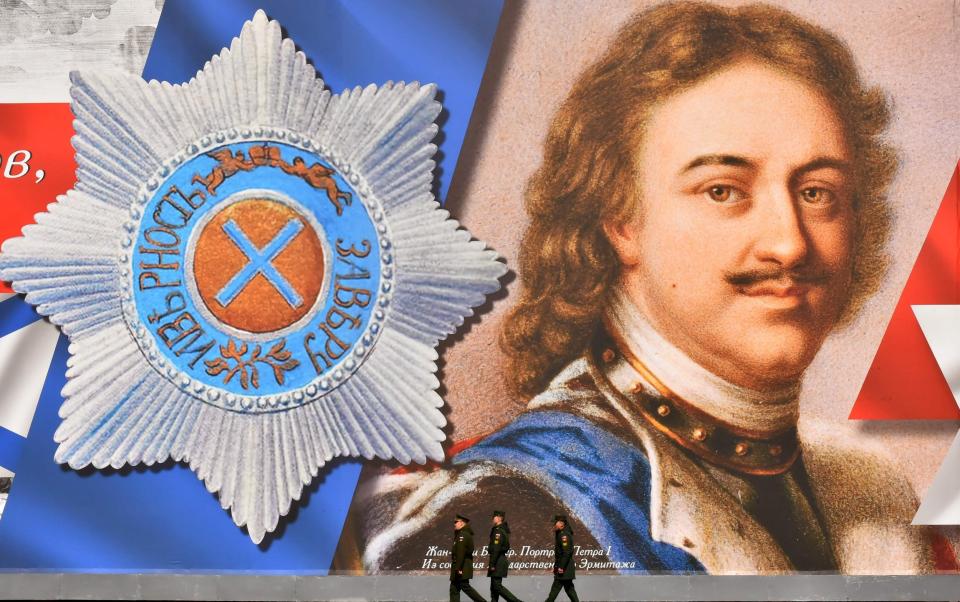I’m reclaiming land for Russia like Peter the Great, says Vladimir Putin

Vladimir Putin on Thursday offered the clearest summation yet of his war goals as he compared himself to Peter the Great “reclaiming” territory for Russia.
At a meeting with young entrepreneurs and scientists, the Russian leader sought to draw a flattering comparison between himself and the 17th-century monarch, who founded St Petersburg – Putin’s birthplace.
“Peter the Great waged the Northern War for 21 years. You might think ‘he was fighting with Sweden, seizing their lands…’ He wasn’t capturing them. He was reclaiming them,” Putin told the scientists.
He went on to imply that he believed swathes of Ukrainian land would soon be annexed by Russia in a similar fashion and that it would eventually be recognised as such.
“When Peter the Great laid the foundation of a new capital in St Petersburg, none of the European countries recognised this territory as Russian. Everyone recognised it as Swedish,” he said.
“But along with Finno-Ugric peoples, Slavs lived there from ancient times. Why did he invade it? To reclaim [our lands] and strengthen [the state]. That’s what he did. It seems that it’s our turn now to return [the land] and strengthen [the state].”
He was speaking at an exhibition in Moscow dedicated to Peter the Great, named Peter I: The Birth of the Empire.

While Putin has used false claims about Nazism and dubious security concerns about Nato to justify the war in Ukraine, his critics have long suspected it is motivated by nostalgia for the Russian empire.
The remarks also suggest that Putin is in no hurry to end the invasion until he has claimed substantial land in Ukraine as his own, or at least wants Kyiv and the West to believe this is the case.
Putin has at times justified the war as a “special operation”, limited to “liberating” the Russian-speaking people in the eastern Donbas region.
Western officials suspect that the Russian leader is not being given the full picture about the chaotic, incompetent performance of the Russian army in Ukraine as they are afraid of reprisals.
On Thursday night, a report in French magazine Paris Match claimed that Putin’s aides collect his urine and stool samples during trips abroad so that they cannot be analysed to reveal potential illness.
Citing “Middle East” sources, the magazine said that during a trip to Saudi Arabia in 2019, Putin’s faeces were collected in special containers, packed in a suitcase and sent back to Moscow.

Of the multiple Russian monarchs to earn the epithet “the Great”, Peter did perhaps the most to shape modern Russia. Initially, he continued the policies of his predecessors, pushing Moscow’s control further south and east, encroaching into the then-Ottoman oriented lands around Crimea and the Sea of Azov.
However, he was obsessed with turning Russia into a maritime and European power, like its European rivals, and he wanted access to the Black Sea.
That campaign failed, but he turned his eyes to the Baltic and capturing lands that Sweden had annexed from the Polish-Lithuanian Commonwealth, while Russia was weakened by a period of internal strife known as the “Time of Troubles” which followed the descent of Ivan the Terrible into madness.
Peter declared war on Sweden, triggering what became known as the Great Northern War, a 21-year conflict that would prove terminal for the Swedish Empire but foundational for Russia.
He was left in control of most of the Gulf of Finland, including modern-day Estonia and the future site of St Petersburg. Russia was also declared officially an empire and elevated to the status of a European great power.
Ironically, however, Peter the Great is credited with doing more than any other Russian leader to make Sweden a European nation, rather than an imperial possession of Moscow.
He travelled extensively in Europe, often in disguise, and saw Europeanisation as the only path out of backwardness for Russia.
Culturally, he forced his nobility to become European. Russian-style clothing was banned from his court, while men were ordered to cut off their long, Asiatic beards or face a hefty tax. He also forced them to be educated, especially in science and maths.
He also embarked on extensive civil service reform and only once this was complete did he return his focus to Muslim lands, conquering swathes of the Caucusus from a declining Persia.

 Yahoo News
Yahoo News 
